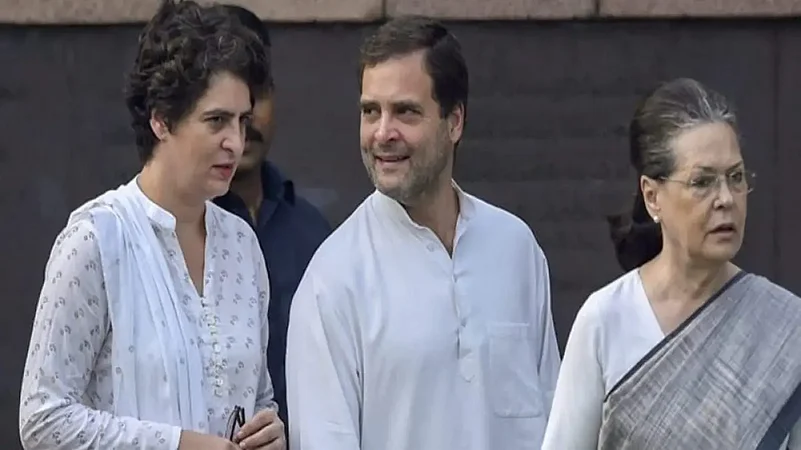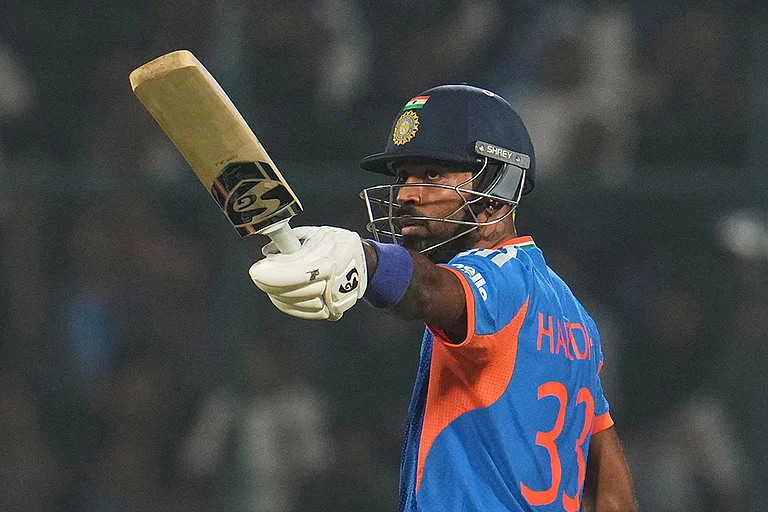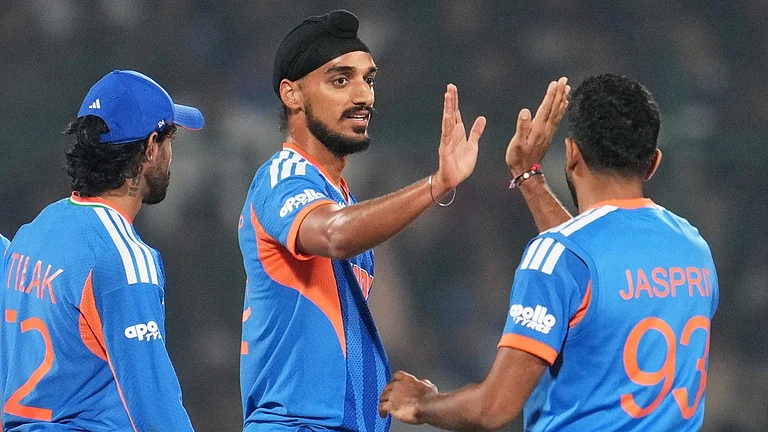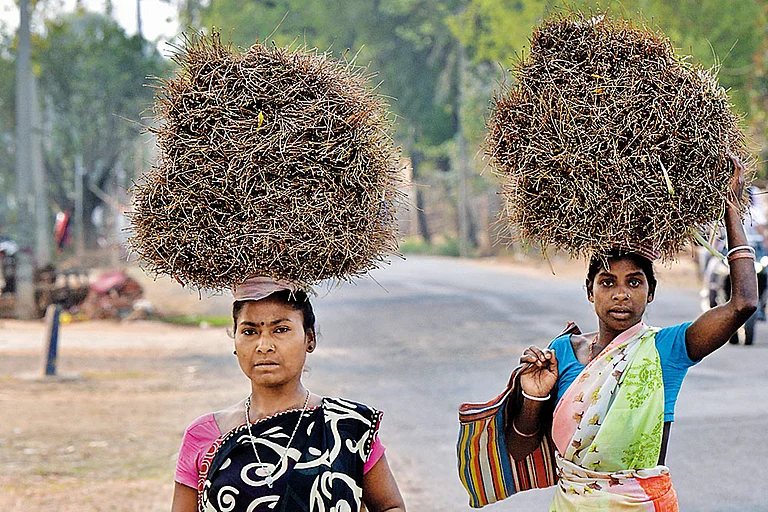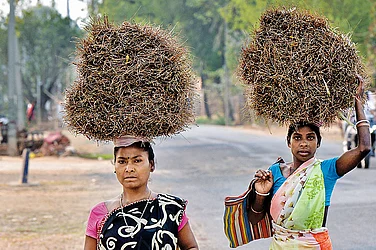Has the long-standing Nehru-Gandhi brand of the Congress lost its sheen, once and for all? Going by the results of the recent assembly elections in five states, including Uttar Pradesh, the grand old party, which was not only born out of the freedom struggle but had also served as the veritable canopy above all social structures for decades, appears to have been afflicted with a seemingly incurable disease. Regardless of all the efforts of its present leadership and workers, nothing has infused a fresh lease of life in the party.
The latest example is the results of the five state elections. The party not only lost Punjab, where it was in power for the past five years but also came a cropper in Uttar Pradesh, Uttarakhand, Goa and Manipur. Sonia Gandhi, who had revived the fortunes of the party way back in 2004 by reuniting the organisation and forming a big alliance along with regional parties from across the country, is no longer active, apparently for health reasons. And her children – Rahul and Priyanka Gandhi – have proved to be unequal to the task given to them.
Her son Rahul Gandhi, for one, has turned out to be a constant failure while her daughter Priyanka failed to deliver yet again in UP despite attracting huge crowds to her rallies in the run-up to the polls. The party was reduced to its worst-ever performance with only two seats and 2.5 per cent of the vote share. The state president of the Congress, Ajay Kumar Lallu, lost his seat among others.
Post results, the Congress Working Committee held a review meeting but nothing, as usual, came out of it. On behalf of the disgruntled G-23 faction comprising veteran leaders, Ghulam Nabi Azad raised some sharp questions but Sonia doused the fire immediately by saying that “we are ready to move out if the Congress could be revived by the withdrawal of me and my family”.
The party has since sought the resignation of the party presidents of all the five states, including the controversial Navjot Singh Sidhu, but it might well be a case of too little, too late.
In any case, nothing was expected from the review meeting since the report of the Ashok Chavan Committee, which was constituted to review the defeat of the party in the assembly elections in Bengal, Assam, Kerala and Tamil Nadu is yet to be studied by the party high command. Earlier also, the report of the Antony Committee was kept in cold storage. Many party leaders and political observers feel that Congress has to act beyond the rituals of constituting a committee to look into the reasons for every defeat.
Ceremonial exercises, after all, merely underline the fact that the leadership has either no desire to revive the party or remains blind to the ground realities. Worse, the party cadre is also unable to shrug off its inertia to rebuild the party from scratch due to a dearth of able leadership. As a result, many leaders and workers are jumping on the BJP bandwagon. In the recently-polled states of Manipur, Goa and Uttarakhand, the BJP benefited immensely from the large-scale defection of the Congress leaders.
Significantly, it has prompted anti-BJP regional parties to move towards forming a non-Congress alliance at the national level. This is despite the fact that Congress is in direct competition with the BJP in 203 parliamentary constituencies and more than 11 states even now.
Assembly elections are due to be held in 11 states before the 2024 Lok Sabha elections. These include Gujarat, Himachal Pradesh, Karnataka, Chhattisgarh, Madhya Pradesh, Rajasthan, Telangana, Tripura, Meghalaya, Nagaland and Mizoram. Together, these states account for 146 Lok Sabha seats, of which the BJP currently has 121. Only Congress remains the main challenger to the BJP in most of these states.
In Gujarat, Himachal, Chhattisgarh, Madhya Pradesh and Rajasthan, there is a direct contest between the Congress and the BJP in a total of 95 parliamentary seats. Congress has been in power in Rajasthan and Chhattisgarh since 2018. It won the Madhya Pradesh assembly elections in 2018 by a small margin, but it could send only three MPs from these states to the Lok Sabha in 2019.
For the country's oldest party, therefore, it is a huge challenge to survive as it has not been able to become an alternative to the BJP in the parliamentary elections even in the states where it is in direct competition. In successive state elections also, it is rarely winning. Congress has at present about 20 per cent of the total assembly seats (812 out of 3,933) in the country. It is not surprising considering the current state of the party. The murmurs among the stalwarts for a change in the leadership have been getting shriller by the day.
Although Sonia Gandhi remains the president of the party, Rahul Gandhi is the de facto head. Rahul and Priyanka had taken the side of Navjot Singh Sidhu to force Captain Amarinder Singh to resign as Chief Minister of Punjab but it did not pay off. Now the party's decimation in Punjab and Priyanka-led Uttar Pradesh may well give a boost to the anti-Rahul faction.
Rahul’s critics also blame him for the party’s defeat in Uttarakhand, where many political pundits had expected the Congress to win. According to a Congress MP in Lok Sabha, Rahul's return to the post of party president in September may not be easy now. He believes that the Nehru-Gandhi brand has lost its sheen and the time has come for the Congress to free itself from the Gandhi family.
Even potential allies are unwilling to hand over the leadership of a non-BJP alliance to Rahul. Trinamool Congress chief Mamata Banerjee has already announced the ‘end’ of UPA while NCP supremo Sharad Pawar has said that Congress should introspect on its leadership. Pawar, incidentally, has admitted that Congress remains the only party that can provide a national alternative to the BJP.
Significantly, Congress can still play a decisive role in Punjab, Assam, Karnataka, Kerala, Haryana, Maharashtra, Jharkhand, Goa, Manipur, Meghalaya, Mizoram and Nagaland. There are a total of 155 Lok Sabha seats in these states. Congress may have won only 52 seats in the 2019 general elections, but it came second in 196 seats. That's why the politics of the country can change if the party is able to reverse its fortunes in the months to come to challenge BJP’s dominance. But the moot point remains: is its leadership ready to pick up the gauntlet?






